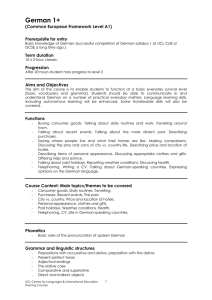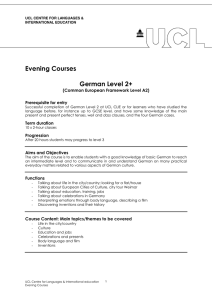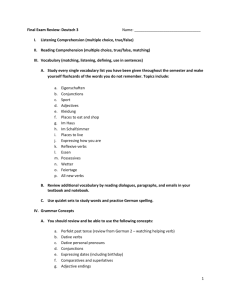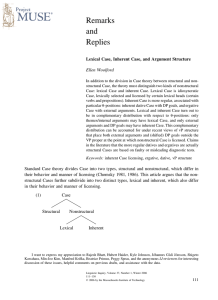German 1020
advertisement
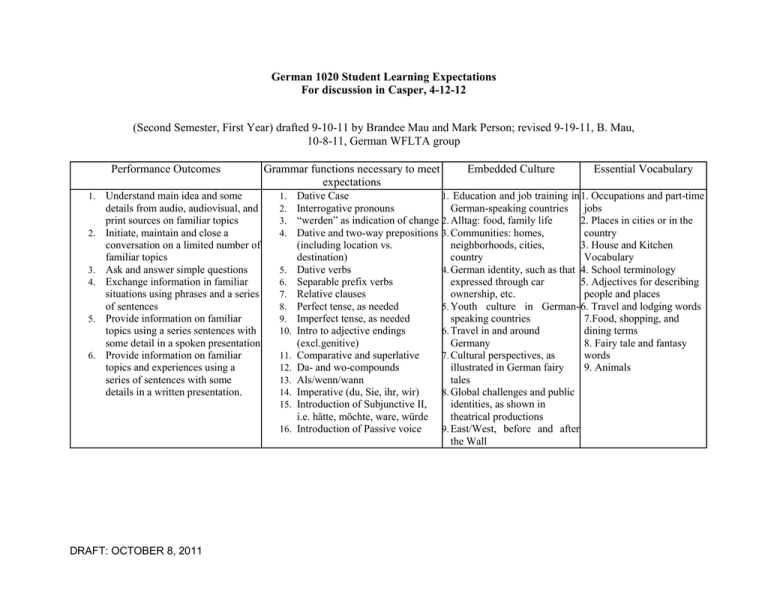
German 1020 Student Learning Expectations For discussion in Casper, 4-12-12 (Second Semester, First Year) drafted 9-10-11 by Brandee Mau and Mark Person; revised 9-19-11, B. Mau, 10-8-11, German WFLTA group Performance Outcomes 1. 2. 3. 4. 5. 6. Understand main idea and some details from audio, audiovisual, and print sources on familiar topics Initiate, maintain and close a conversation on a limited number of familiar topics Ask and answer simple questions Exchange information in familiar situations using phrases and a series of sentences Provide information on familiar topics using a series sentences with some detail in a spoken presentation Provide information on familiar topics and experiences using a series of sentences with some details in a written presentation. Grammar functions necessary to meet expectations 1. 2. 3. 4. 5. 6. 7. 8. 9. 10. 11. 12. 13. 14. 15. 16. DRAFT: OCTOBER 8, 2011 Embedded Culture Essential Vocabulary Dative Case 1. Education and job training1.in 1. Occupations and part-time Interrogative pronouns German-speaking countries jobs “werden” as indication of change 2. Alltag: food, family life 2. 2. Places in cities or in the Dative and two-way prepositions 3. Communities: homes, country (including location vs. neighborhoods, cities, 3. 3. House and Kitchen destination) country Vocabulary Dative verbs 4. German identity, such as that 4. 4. School terminology Separable prefix verbs expressed through car 5. 5. Adjectives for describing Relative clauses ownership, etc. people and places Perfect tense, as needed 5. Youth culture in German6. 6. Travel and lodging words Imperfect tense, as needed speaking countries 7.Food, shopping, and Intro to adjective endings 6. Travel in and around dining terms (excl.genitive) Germany 8. Fairy tale and fantasy Comparative and superlative 7. Cultural perspectives, as words Da- and wo-compounds illustrated in German fairy 9. Animals Als/wenn/wann tales Imperative (du, Sie, ihr, wir) 8. Global challenges and public Introduction of Subjunctive II, identities, as shown in i.e. hätte, möchte, ware, würde theatrical productions Introduction of Passive voice 9. East/West, before and after the Wall
